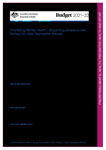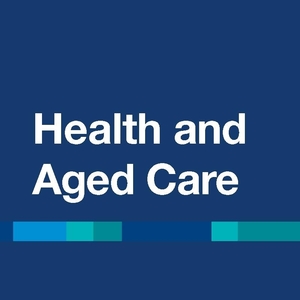This is absolutely HUGE news. Transcranial Magnetic Stimulation (TMS) is a proven therapy used to treat depression. Normally it costs ~$160-$200 per session, now it will be covered by Medicare.
Full government spiel below
Prioritising Mental Health – Supporting access to new therapy for major depressive disorder
The Australian Government is investing $288.5 million to introduce a new service for Repetitive Transcranial Magnetic Stimulation (rTMS) therapy to the Medicare Benefits Schedule (MBS) following recommendations from the independent Medical Services Advisory Committee (MSAC).
This investment will ensure Australians battling major depressive disorders who are non-responsive to antidepressant medications can access this innovative Medicare-subsidised therapy. This is part of a record $2.3 billion whole-of-government Mental Health and Suicide Prevention Plan.
rTMS is a form of localised brain stimulation therapy used to target the region of the brain involved in mood regulation and depression. It has been found to be effective in treating major depressive disorders and provides a more non-invasive option for medication resistant patients compared to the alternative – electroconvulsive therapy.
Eligible adult patients who have tried at least two different classes of antidepressant medicines but remain unwell will be able to access Medicare-subsidised rTMS therapy.
Why is this important?
Evidence shows that rTMS therapy is safe, well tolerated, and effective in treating major depressive disorders. Previously, rTMS therapy has been prohibitively expensive for Australians suffering major depressive illness. The addition of rTMS to the MBS aligns with the Australian Government’s commitment to ensure Australians are able to access affordable and safe healthcare that reflects contemporary clinical practice.
These investments are in response the National Suicide Prevention Adviser’s Final Advice and the Productivity Commission's Inquiry into Mental Health.
Who will benefit?
It is estimated that in the coming 4 years, some 90,000 Australians will be eligible for MBS subsidised rTMS therapy.
They will benefit from an initial course of up to 35 rTMS treatment sessions, with one re-treatment course of up to 15 sessions if they have relapsed after responding to the initial treatment course.
How much will this cost?
The Australian Government is investing $288.5 million* over 4 years from 1 November 2021 to 2024–25.
* This investment also appears in the Guaranteeing Medicare – MBS review and new inclusions factsheet



@pompompom: From the most recent network meta-analysis by Papadimitropoulou et al.:
"At 6 weeks after baseline, rTMS (80–120%) showed the highest remission rates and ranked first among all competing pharmacological interventions (OR 8.58 95% CrI 1.15, 112.55)."
So not only does it work, it appears to work better than all competing interventions at achieving remission.